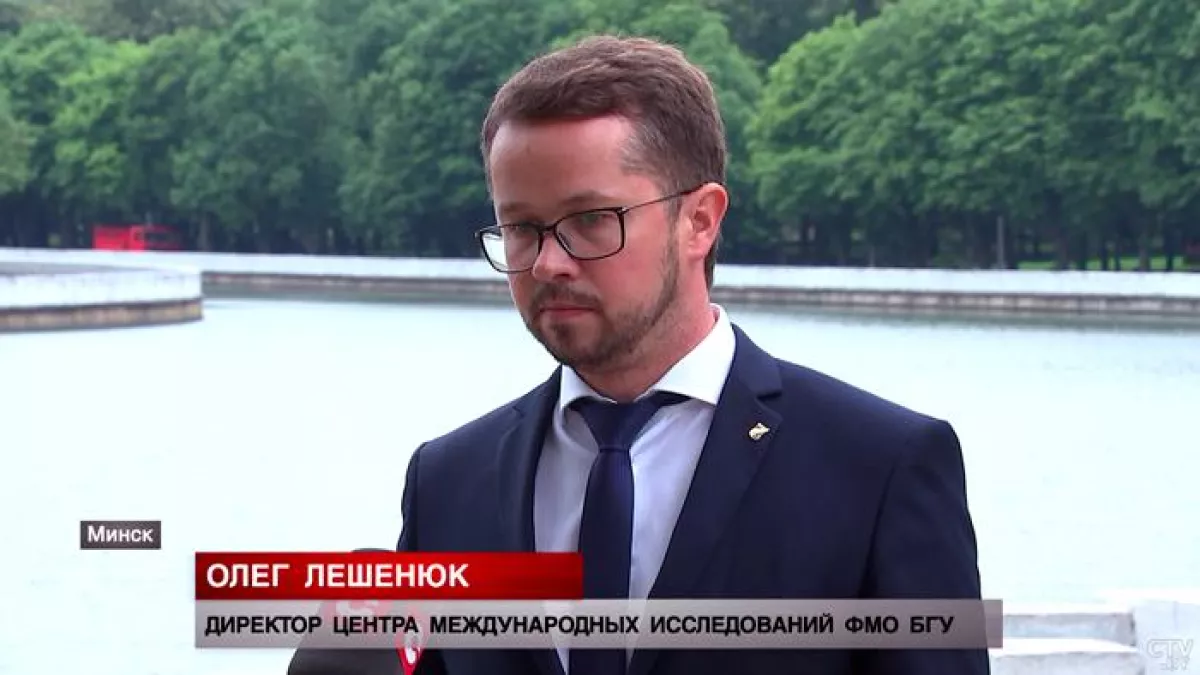Armenia's new alliance: Strategic triumph or a cheap deal? Experts weigh in on Yerevan-Washington partnership
The Strategic Partnership Charter between the U.S. and Armenia, signed at the end of Joe Biden's presidency, has raised scepticism among experts and political analysts. The document was signed almost hastily, seen as a last-minute attempt by the Democrats to pay back the Armenian lobby's support in the U.S.
According to German political scientist Evgeny Kudryats, the charter is unlikely to significantly impact regional geopolitics or provide any substantial benefits to Yerevan. In an interview with Caliber.Az, he noted that Washington has similar agreements with various countries.

"The mere signing of the charter is not surprising, because Armenia is rapidly moving away from cooperation with Moscow and, in general, from Russia's influence. However, what is most interesting is that Moscow seems to be not particularly impressed by this move from Yerevan; the reaction was extremely restrained. Perhaps, Moscow understands that Yerevan will soon step on its own rake: the fact is that Armenia initiated EU membership last year, and this decision is actively supported in Brussels. At the same time, Yerevan expresses a desire to remain in the EAEU and enjoy all its privileges. Meanwhile, Russia has clearly indicated that Armenia will have to make a clear choice between EU integration and EAEU membership, which it will certainly have to abandon. Pashinyan, apparently, is trying to handle this issue as cautiously as possible, but it is already clear that Yerevan will not be painless in the process of rapprochement with the West.
"In the case of an agreement with the U.S., it could lead to unpredictable political complications for Yerevan—Armenia has a history of poorly calculating its moves on the geopolitical chessboard. As for Azerbaijan, in my view, there is no need to react. Azerbaijan follows a multi-vector, fully independent foreign policy and does not rely on the support of any sovereign, unlike Armenia. Therefore, it can afford to give Yerevan a considerable lead on the political stage.
It's difficult to predict exactly how President Trump will respond to this charter, but it is likely that the new U.S. administration will maintain it. The U.S. is interested in influencing Armenia as a counterbalance to Russia's regional dominance. However, the situation could change dramatically," says Kudryats.

According to Oleg Leshenyuk, Director of the Center for International Studies at the Faculty of International Relations at Belarusian State University, the intensification of Armenia's cooperation with the U.S. under the Strategic Partnership Charter could have serious consequences both for Armenia and for the entire region.
"The agreement includes the creation of a working group to monitor the export of dual-use goods, information exchange, and five points in the field of defence and security, within which bilateral consultations will be initiated. The U.S. will begin training Armenian military personnel, as well as police and other security services. This will create conditions for increased tension in the Caucasus and Eurasia. At present, Armenia continues to block the peace agreement with Azerbaijan, delaying the issue of border delimitation, while actively building strategic relations with Western partners and expressing its desire to join the EU. At the same time, Armenia remains a member of the EAEU, the CIS, and the CSTO, despite Pashinyan's efforts to 'freeze' its membership. Another country succumbing to promises and financial investments from the West, it is highly likely that we will soon hear statements about Armenia's desire to join NATO. This would lay the groundwork for NATO's eastward expansion," the political analyst believes.
According to Dmitry Gradov, a Russian political analyst and candidate of political sciences, the Strategic Partnership Charter between the U.S. and Armenia is a rather vague document that does not offer concrete political guarantees or a political "umbrella" for Yerevan.

"First and foremost, it must be understood that such agreements are of interest to the U.S. because they effectively legalize cooperation with the opposing side in areas such as intelligence, espionage, and the sharing of strategic information about regional neighbours, including military-technical cooperation, if applicable. In this way, Armenia becomes an official spy hub for the U.S. in the South Caucasus—on all other issues, it is much less important to Washington. For vague promises of some political support, Armenia is also willing to become a testing ground for U.S. experiments in nuclear energy, agreeing to host several American modular mini-nuclear reactors, while other countries are not eager to cooperate with the U.S. in this field—there are environmental concerns and project cost issues.
The agreement itself is a document with rather unclear guarantees and obligations, more resembling a memorandum. If compared to similar agreements the U.S. has with Georgia and Ukraine, the latter two have much more specificity and defined commitments, which supports the notion that Armenia was bought cheaply, with very little promised in return. Yes, it’s possible that in the event of a serious military conflict between Baku and Yerevan, the U.S. could provide some political support to Armenia, but much of this is undermined by the arrival of Trump and his team, who could render this document largely formal and less actionable. Yes, Trump and the State Department will likely be interested in the military-technical aspects of the agreement, particularly in terms of deterring Russia, again in the fields of intelligence and espionage. However, in all other respects, things could slow down considerably.
Possibly, the U.S. may invest significantly in Armenia’s economy—such agreements often imply this—but how active this process will be under Trump is another big question. It's important to remember that Trump is an unpredictable player and may not follow the established rules. So, if those in Yerevan think they’ve tied the U.S. to some unconditional commitments that Trump will have to uphold, that’s a major misconception. Let’s recall how decisively and sharply Trump tore up the Iran deal, exposing Tehran for double-dealing, despite the fact that Obama’s administration had spent a long time and effort negotiating with Iran. The same situation applies to China. Trump is a politician who does not favour cooperation with hidden agendas or vague commitments, and Armenia is exactly the kind of doubtful ally that the U.S. might sacrifice in favour of better relations with Moscow. In this case, Yerevan would suffer a significant geopolitical defeat and lose its political weight in the region—though it’s unlikely that any of its regional neighbours would deeply regret that outcome.
And finally, the main cherry on top—the key question is how Tehran will react to this move, as it cannot remain indifferent to such a betrayal by Yerevan. Already, we are seeing Tehran strengthen its cooperation with Russia in the region, and this tandem could increase pressure on Yerevan. It will be extremely difficult for Armenia to counter such pressure, including that from the U.S.," summarized Gradov.








